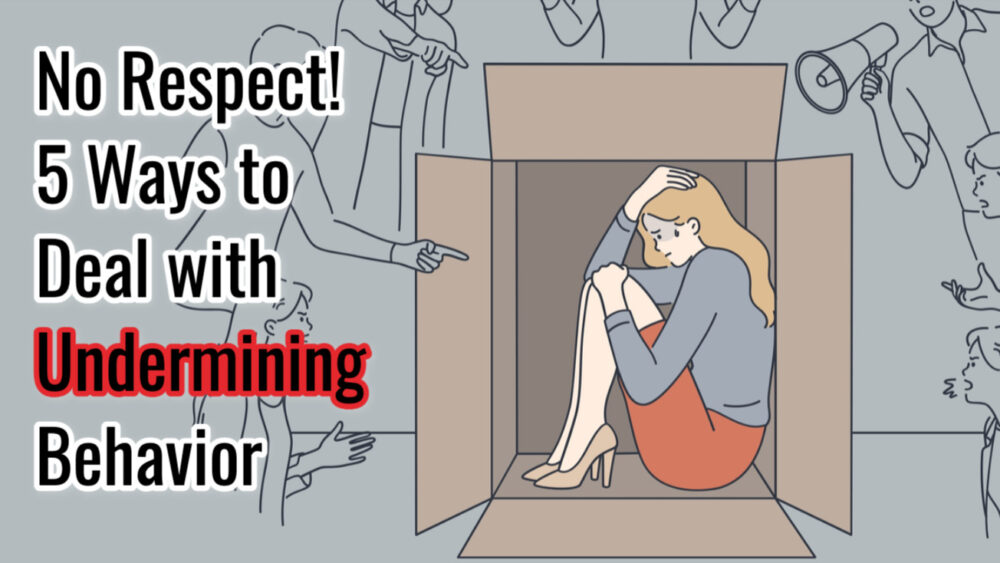What is “Undermining Behavior”?
A standard definition for the term undermine is “to erode the base or foundation” or “to weaken or damage, especially gradually or insidiously.” The way you may experience this at work are times when someone acts to weaken another’s position, goals, or successes, with intent to either derail you or your dreams. You may start to doubt yourself, feel a lack of support, and you may become resentful, with its emotional toll.
Whether at work or with so-call “friends” or acquaintances, Here are steps you can take to nip this in the bud:
- Look for the signs of undermining: Before you take action, ensure you’re right about being undermined. What you see may be a friend putting her foot in her mouth. A colleague at work may be making an honest mistake without a motive to harm you. If you are highly sensitive to what others say and do, then you might perceive undermining when it isn’t present. How do you know when it is really happening? Check out the following:
You feel it’s necessary to defend your position. You may think that you have to defend your statements, thoughts, and ideas or the urge to prove yourself, but you don’t know why.
You receive “backhanded compliments.” A backhanded compliment is one that makes you feel good when you hear it, but then it gets worse the longer you think about it. It feels that their words are insulting or even offensive.
- Determine why this person is undermining you. This person might have several reasons for his or her behavior. They might be jealous of your popularity, or the successful reputation they think you have. Understanding their reasons will help you plan how best to deal with them.
. - Be upfront about your goals and plans with this person. Take time to explain what you are doing, why you are doing it. Your friend or colleague may not be aware of the impact of his or her behavior. Let this person know the behavior(s) that you are concerned about it. Be transparent. Having a forthright conversation will help you address any misconceptions and perhaps lead to a better relationship.
- Stand firm if the person continues to undermine you. Not everyone will want to resolve issues. Suffering someone’s gossip and lies will make your life miserable. Ask yourself this question: what is in my control and what isn’t? Make a conscious decision to set some boundaries–that will help you build your confidence. For example, if you weren’t invited to a party or meeting, approach the person who excluded you and ask them to include you in the future. Having that kind of conversation puts the offender on notice.
- Stop sharing information with the person undermining you. If all else fails, and you determine the person cannot or will not change their behavior, cut off the flow of information to them. Stop inviting them to parties or meetings where possible. In the workplace, keep documentation on interactions with the co-worker, including the behaviors you experience. With well-documented information, you always have the option of escalating this problem to a supervisor. However, it should be the last resort. Having this record will ensure you are not allowing yourself to become victimized since you can stand your ground at the right time in a powerful way.
The insights in this article are the opinion of the writer.
Stay tuned for the release of our new book! Grit, Grace and Gravitas: The Three Keys to Transforming Leadership, Presence, and Impact, by Jane Firth, MSOD and Andrea Zintz, Ph.D.



